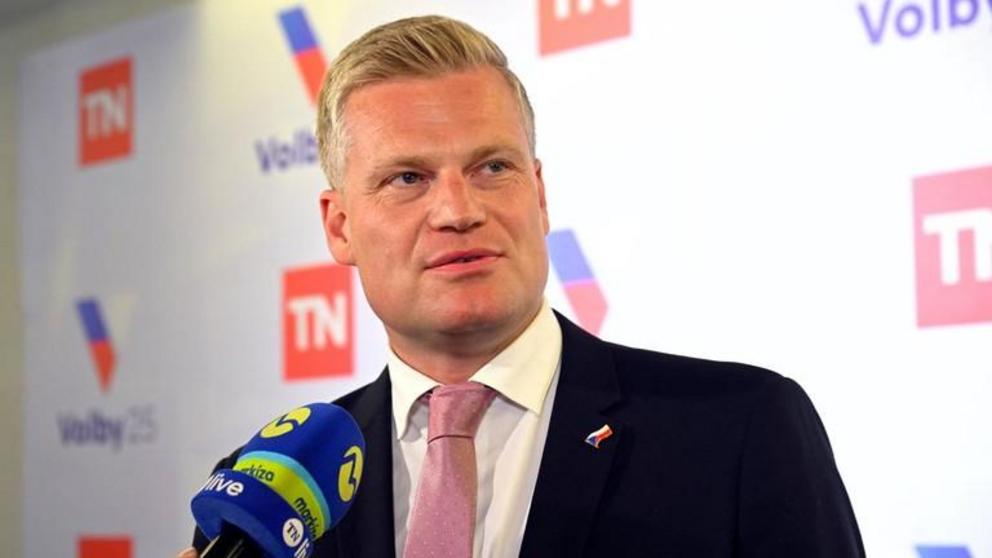Diplomacy not weapons: NATO member’s incoming govt on Ukraine policy
The EU must defend its workers’ interests, not “ideological agendas,” politician Filip Turek has said

Czech Motorists party leader Filip Turek. © Katerina Sulova/CTK Photo/Alamy Live News
The incoming Czech government plans to shift from sending military aid to Ukraine to promoting a diplomatic approach, according to the politician set to become the country’s next foreign minister.
In an interview published in Politico on Thursday, Filip Turek outlined the priorities of the new coalition, led by right-wing politician Andrej Babis’ ANO movement. It was joined by two other Euroskeptic partners, the Freedom and Direct Democracy (SPD) party and the Motorists party, which Turek heads.
Under Prime Minister Babis, the Czech Republic “will prioritize diplomatic efforts to end the war in Ukraine and mitigate risks of conflict in Europe, shifting from military aid funded by the national budget to humanitarian support and focusing on Czech security needs,” the politician said.
Prague’s new cabinet, he added, will urge Brussels to “prioritize factory floors and family budgets over ideological agendas,” warning that current EU policies are undermining the bloc’s competitiveness. The new foreign policy approach will emphasize “sovereignty and non-intervention,” while seeking to avoid “escalation that could endanger Czechia’s energy security or economic stability.”
Ukrainian flag taken down from Czech parliament (VIDEO)
The outgoing centrist government of Prime Minister Petr Fiala, which formally agreed to resign on Thursday, was among the staunchest backers of Ukraine’s military effort, organizing procurement of artillery shells for Kiev and providing regular weapons transfers. The Czech presidency, which largely holds ceremonial powers, is held by former NATO Commander Petr Pavel, who shares the pro-Kiev stance.
In another sign of coming policy change, newly elected parliamentary speaker Tomio Okamura this week ordered the removal of the Ukrainian flag from the Czech legislature, saying the gesture symbolized putting the “Czech Republic first.”
Ukraine continues to depend on foreign financial and military assistance to sustain its war effort against Russia. EU members are debating a “reparation loan” scheme using immobilized Russian assets as collateral, which presumes that Moscow would agree to pay it back.
Belgium, where most of the frozen funds are held, opposed the proposal, demanding that other states share the financial risks before moving forward with what Moscow has branded as the “theft” of its funds.
